The Bank Resolution Mechanism Will Neither Be Good Nor Bad. It Will Be Timely
Adelina Marini, December 18, 2013
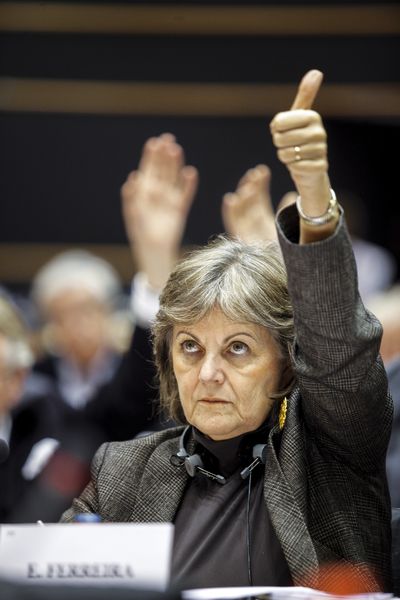 One thing is certain at this stage - the second leg of the banking union - the resolution mechanism for ailing banks will be built on time. It will probably neither be good nor pretty bad, but it will be very complex. With such expectations began the extraordinary meeting of the EU finance ministers this morning, which has to achieve an agreement on the mechanism the purpose of which is to respond to the functions of the already built single supervisory mechanism (SSM). When the supervisor finds out that a bank of systemic importance is in serious trouble there must be someone to decide whether it should be saved, how it will be saved and with whose money. The initial plan of the European Commission was such a decision to be taken by the Commission itself because if that was left to the supervisor, the European Central Bank, there will be a conflict of interest.
One thing is certain at this stage - the second leg of the banking union - the resolution mechanism for ailing banks will be built on time. It will probably neither be good nor pretty bad, but it will be very complex. With such expectations began the extraordinary meeting of the EU finance ministers this morning, which has to achieve an agreement on the mechanism the purpose of which is to respond to the functions of the already built single supervisory mechanism (SSM). When the supervisor finds out that a bank of systemic importance is in serious trouble there must be someone to decide whether it should be saved, how it will be saved and with whose money. The initial plan of the European Commission was such a decision to be taken by the Commission itself because if that was left to the supervisor, the European Central Bank, there will be a conflict of interest.
Some member states led by Germany, however, do not agree with this role of the Commission and that is why a strange hybrid will be built of a common European body and a board of the member states. It is planned by 2028 the common European resolution fund to be established and filled with a financial power worth some 60 billion euros. Just to compare, for Spain the EU agreed to lend from the eurozone bailout fund 100 billion euros for recapitalisation of the Spanish banking system. It is true that this case is about an entire banking system, but there are other numbers as well. The European Commission allowed Slovenia today to recapitalise with its own funds five Slovene banks as the total amount of the state aid will be 4.7 billion euros. And that is for a tiny Slovenia. The size of the fund, however, is not the biggest problem. Much more serious issue is what funds will be used until the full capacity of the fund is reached, which is envisaged to take ten years. And here comes the odd hybridness. Currently, the moods are for some form of a national-European approach.
The Lithuanian presidency, in the face of Finance Minister Rimantas Sadzius, assured that still a major priority is bailing out of banks to be a primary responsibility of the industry. Public funds will be used much later in the hierarchy, but leaked rumours make it clear that this is not quite certain. The eurozone finance ministers have managed to agree precisely on the so called backstops for resolution and recovery in the transition period, which is now a subject of debate in the larger forum - the Ecofin. 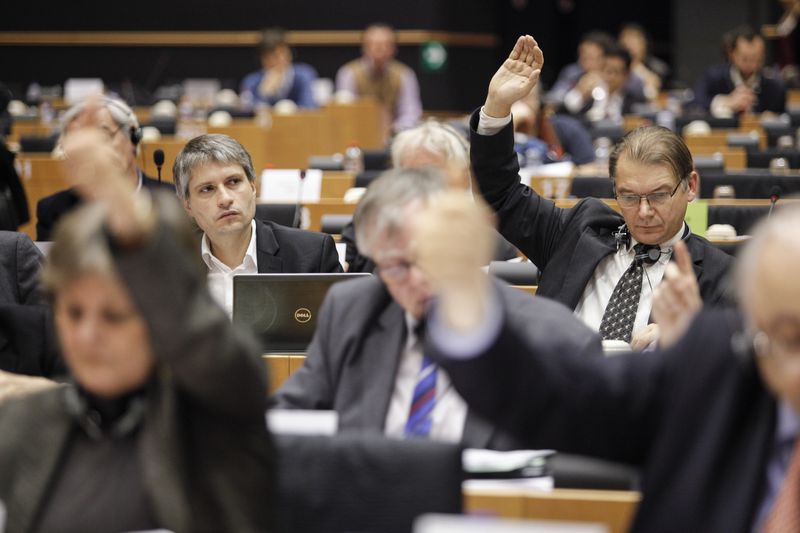 Separately, as euinside wrote, an intergovernmental solution is sought, which is rejected by the Commission, the European Parliament and the central bank.
Separately, as euinside wrote, an intergovernmental solution is sought, which is rejected by the Commission, the European Parliament and the central bank.
Before MEPs in the European Parliament's economic committee ECB chief Mario Draghi said on December 16th that the supervisory mechanism needed a strong and credible resolution mechanism. According to him, three elements are essential and all the three contain the word "single". Those are a single system, a single authority and a single fund. "I am concerned that decision-making may become overly complex and financing arrangements may not be adequate. I trust that the European Parliament, together with the Council, will succeed in creating a true Banking Union", Draghi said on Monday. For a single mechanism in the true meaning of that word called last week European President Herman Van Rompuy, who will chair the EU summit on Thursday and Friday. Then he said that it was important the mechanism to be "truly single and truly European".
And on Tuesday evening the parliament came up with a firm negotiating position in which it insists the European Commission to be that single authority Mario Draghi was speaking about. The parliament also calls for a simple decision-making procedure. At this stage it seems, though, that nothing will be simple. Again, before the economic committee, the Lithuanian finance minster, in his capacity of a chairman of the Ecofin, tried to avoid the numerous questions of MEPs about how will the SRM look like. He admitted that the negotiations were very tough, tensed, that sometimes there were clashes and conflicts and that positions were changing every two hours. What will come up to light in the end, however, will not be entirely subject to negotiations with the European Parliament. This is practically a recognition that the intergovernmental approach will be maintained in spite of the objections of the three key institutions - the Commission, ECB and the EP, as the second is especially crucial because it also plays the role of a supervisor.
According to the economic committee chair Sharon Bowles (ALDE, UK), this will be a "devastating blow" for the entire system. The European Parliament's rapporteur on this dossier, Elisa Ferreira (S&D, Portugal), pointed out that whatever the organisation for decision-making it should not be politicised. Lithuanian Finance Minister Rimantas Sadzius assured that the issue on who should take the decision a bank to be wound up will be one of the points that will be included in the negotiations with the European Parliament.
Swedish Finance Minister Anders Borg again voiced scepticism before the beginning of the meeting pointing out that the ministers are headed toward a very complex structure which will not be reliable for the markets. Sweden will not take part in the mechanism, but is affected by it. During the very brief public debate of the issue in Ecofin before noon the ECB reiterated that the most important for the bank was the decision to be taken immediately, within no more than 24 hours. Everyone who took part in a resolution process of a bank knows that these things need to be done urgently. After a statement is made that a bank is not viable, the decision must be taken immediately, Mario Draghi explained on Monday. That is why, whatever the mechanism it should be able to work. Nonetheless, he pointed out  that it would hardly work if a decision is taken by a hundred people, to put it that way. "That's my worry here that the mechanism that is to come out will actually be a working one", the ECB chief predicted.
that it would hardly work if a decision is taken by a hundred people, to put it that way. "That's my worry here that the mechanism that is to come out will actually be a working one", the ECB chief predicted.
Eurogroup chairman Jeroen Dijsselbloem, however, seemed happy at 02.30 this morning when the negotiations ended among the euro area finance ministers. He said it was agreed how exactly the resolution process would be funded in the transitional period but refused to elaborate. The agreement in the Eurogroup, after many hours of negotiations, was made possible after another meeting which took place a few days ago in Berlin only among five eurozone member states. German MEP Sven Giegold, from the group of Greens and European Free Alliance, asked the Lithuanian finance minister whether such an approach was acceptable, to which Mr Sadzius answered that any formats were acceptable. He made a very odd admission by saying that when we are together all the 28 ministers there is a risk of not reaching an agreement. He added that the meetings between several ministers were useful to clear problems.
Then it seems the decisions are dictated by certain states and the rest are offered only to sign an already agreed deal. However, for Jeroen Dijsselbloem it is more important to stick to the mandate given by the heads of state or government an agreement on the second pillar of the banking union to be concluded by the end of the year. In this way, we will probably have a resolution mechanism that will neither be bad good nor bad, but will simply be built on time. The finance minsters have time to negotiate until Thursday afternoon when the final for this year EU summit will begin.
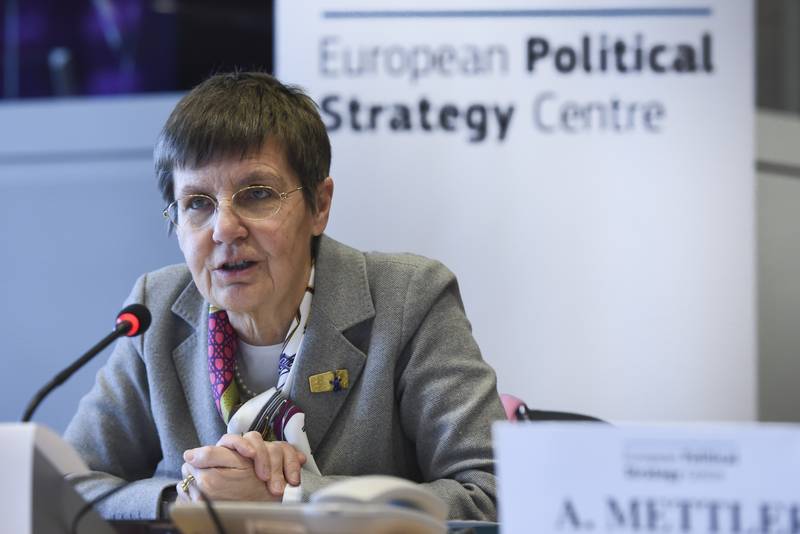 Elke Koenig | © European Commission
Elke Koenig | © European Commission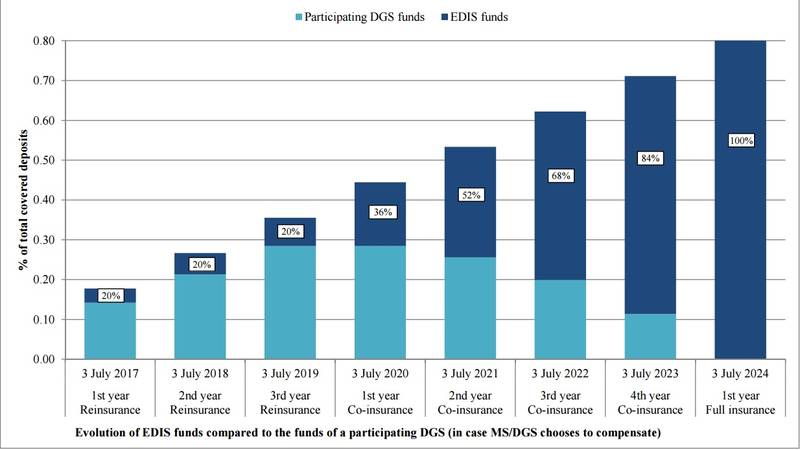 | © European Commission
| © European Commission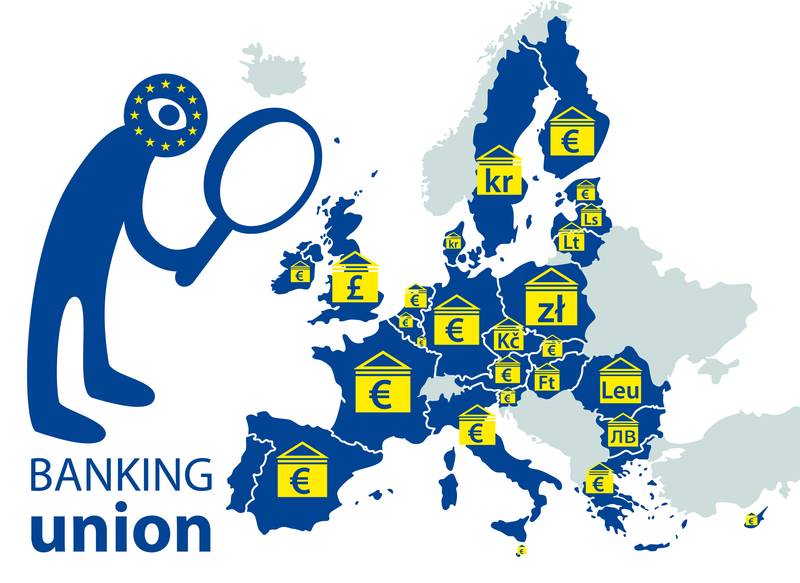 | © European Parliament
| © European Parliament